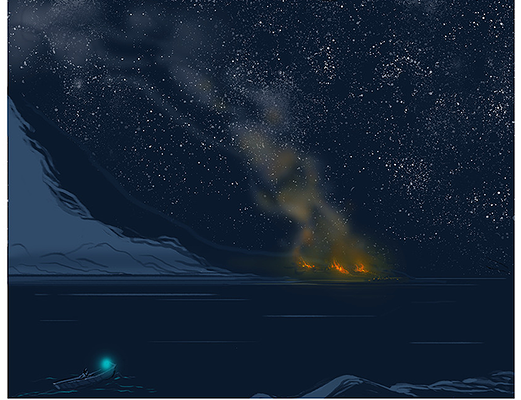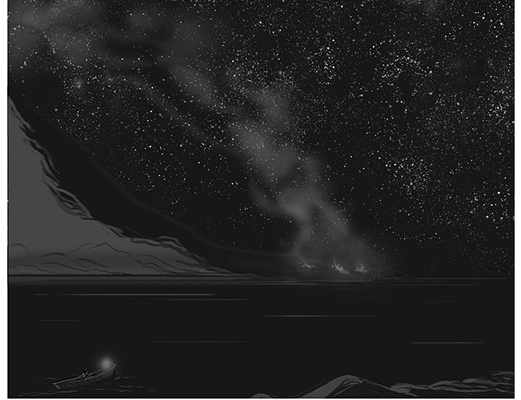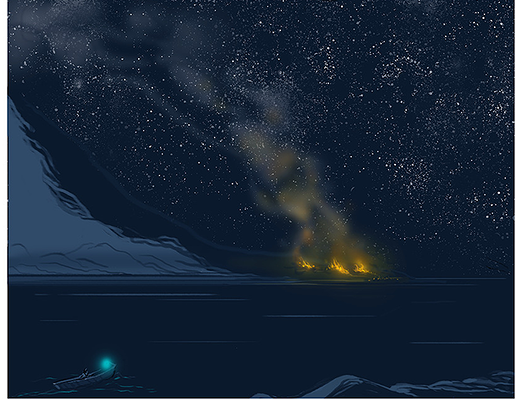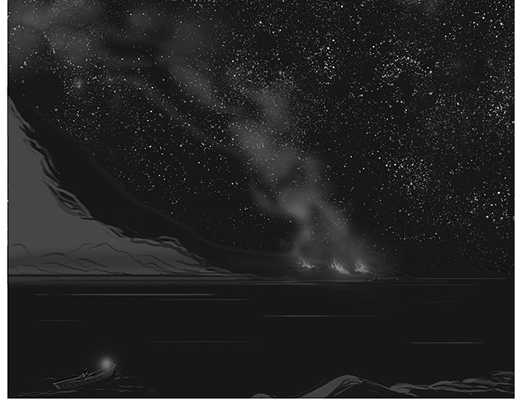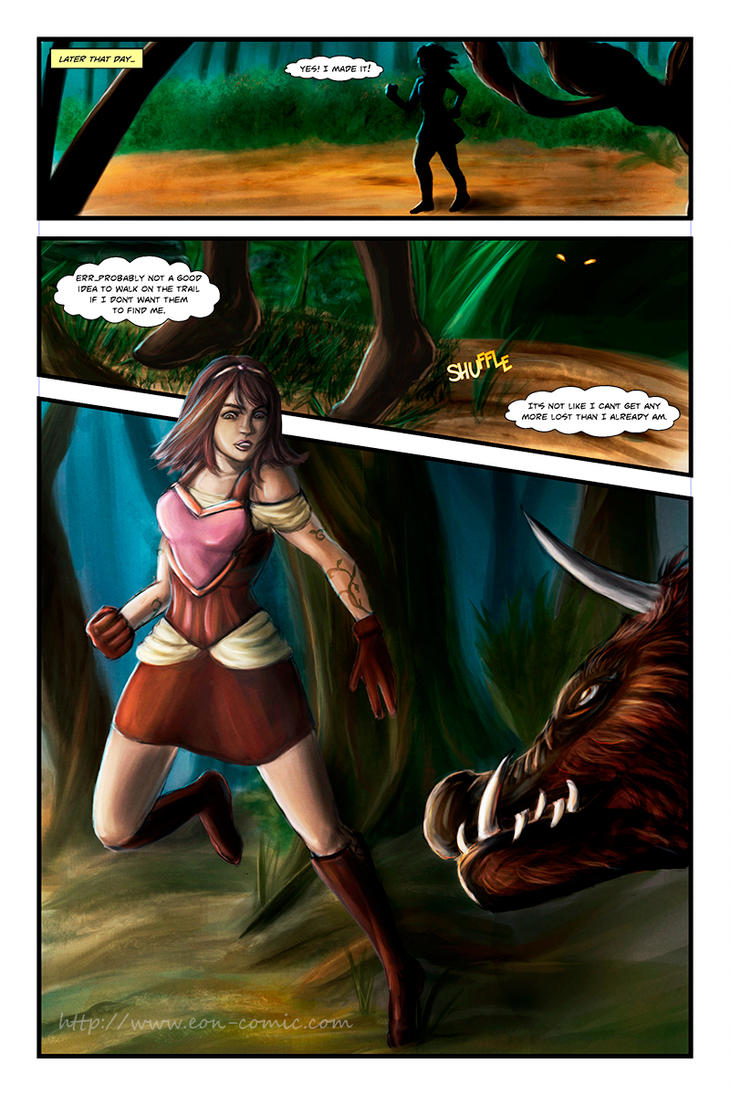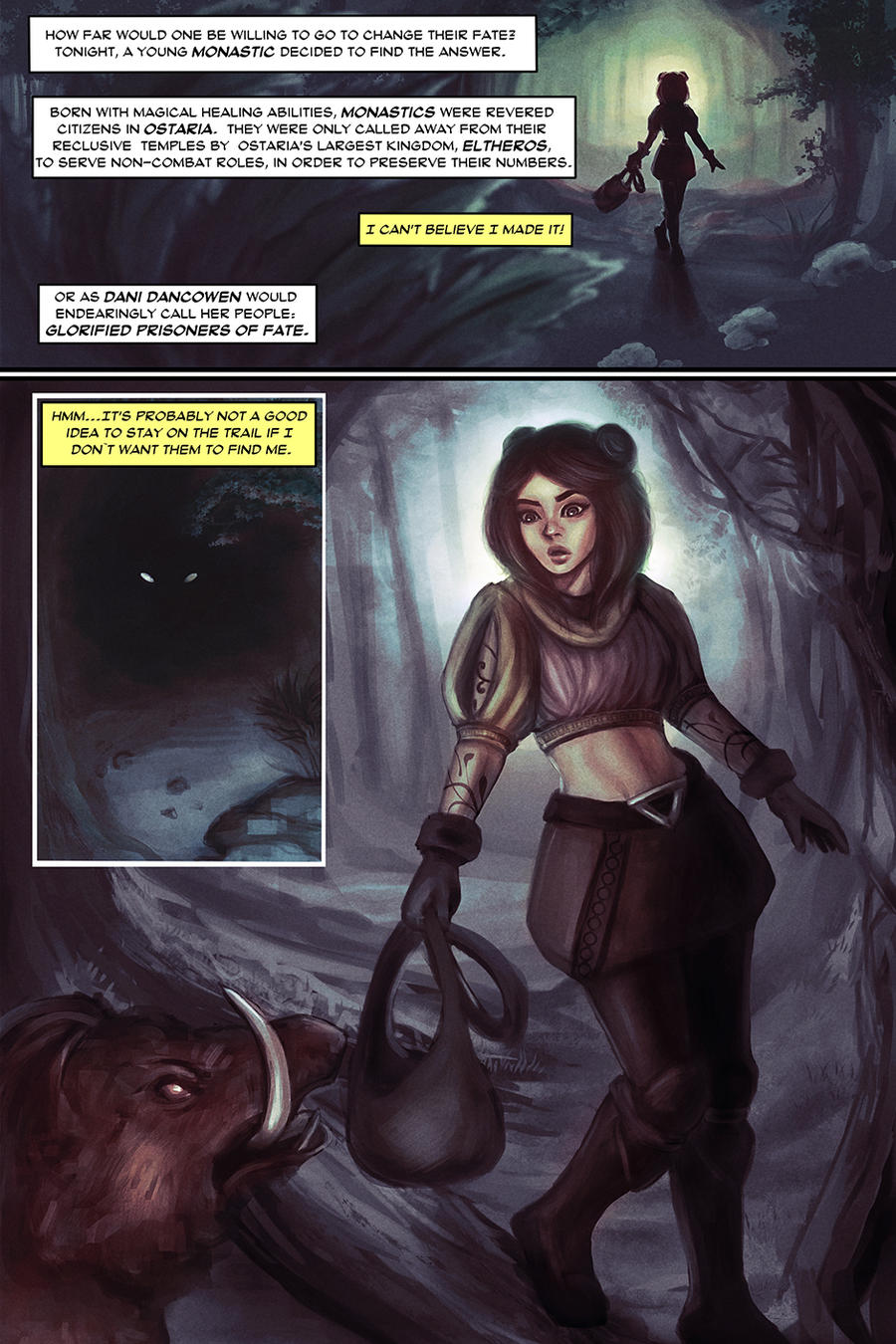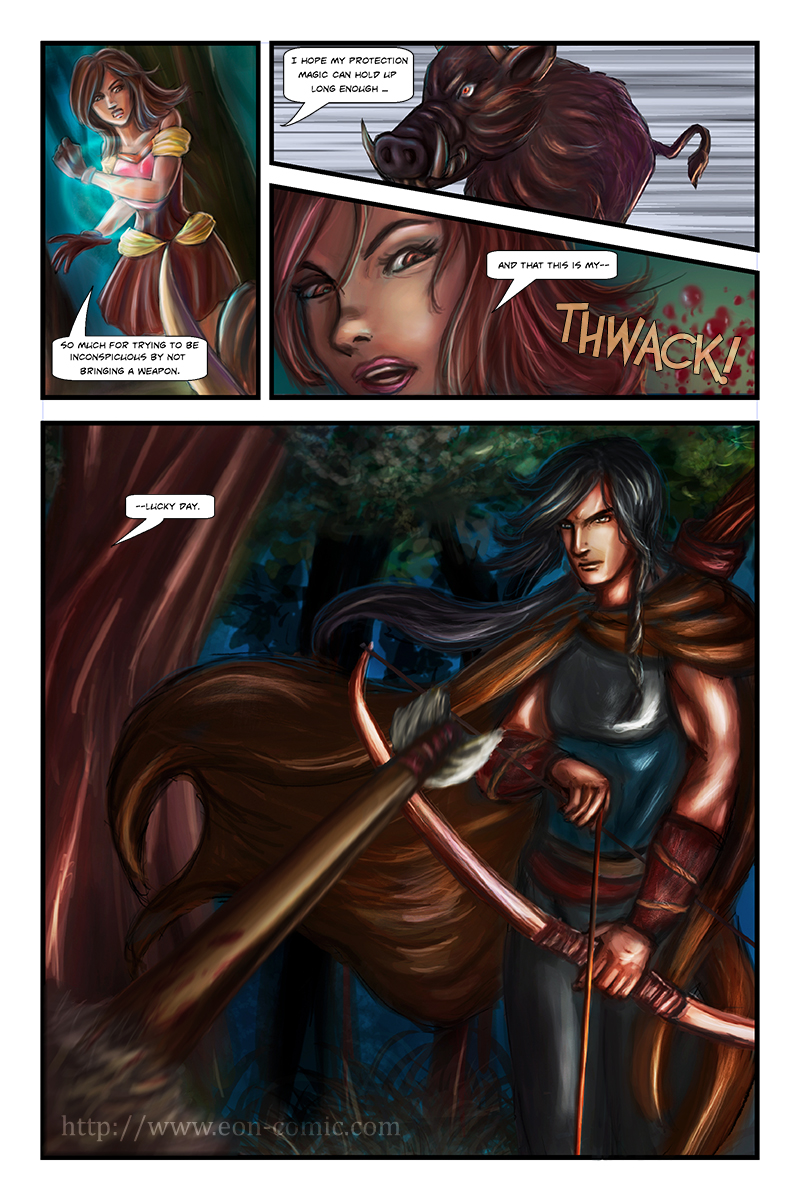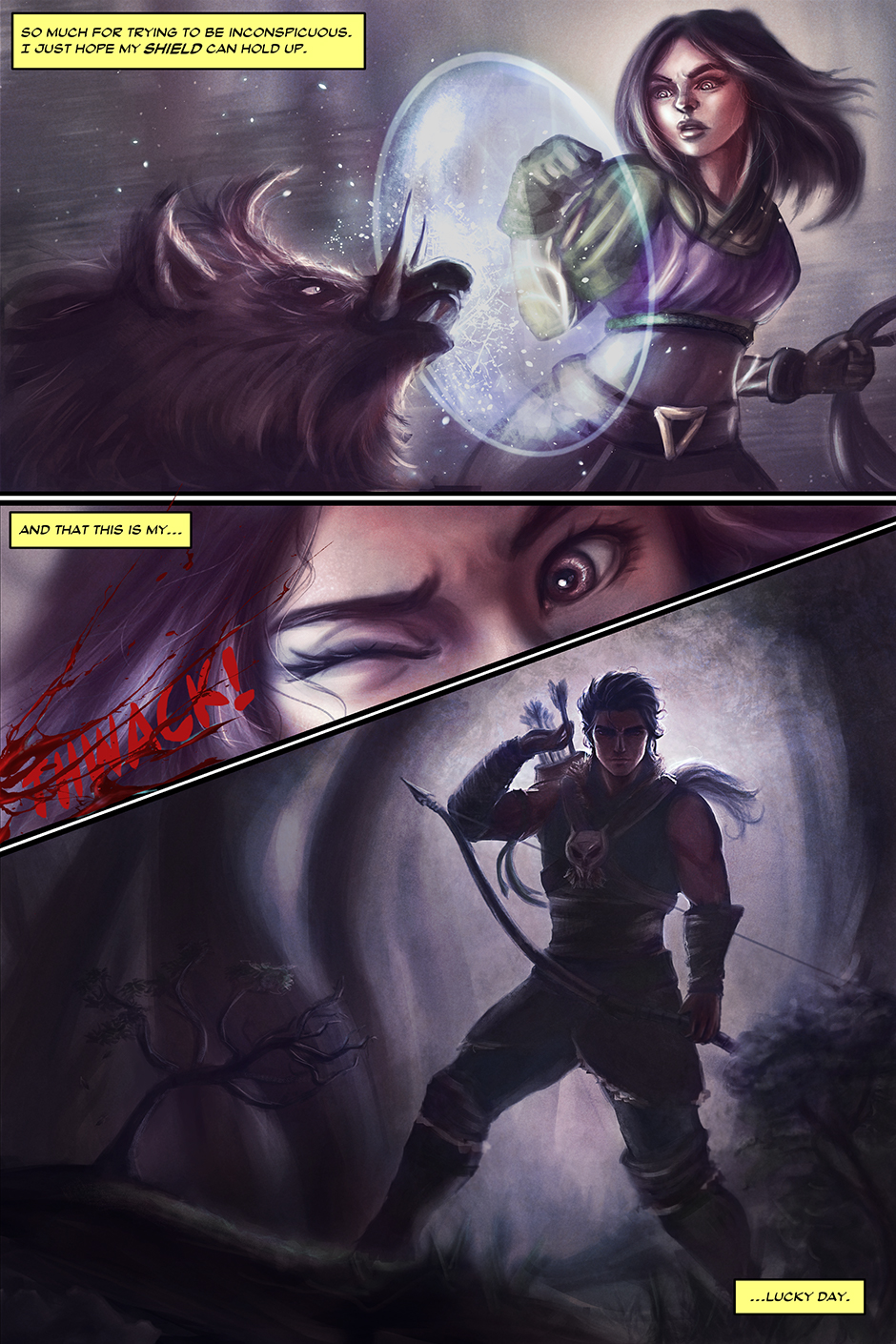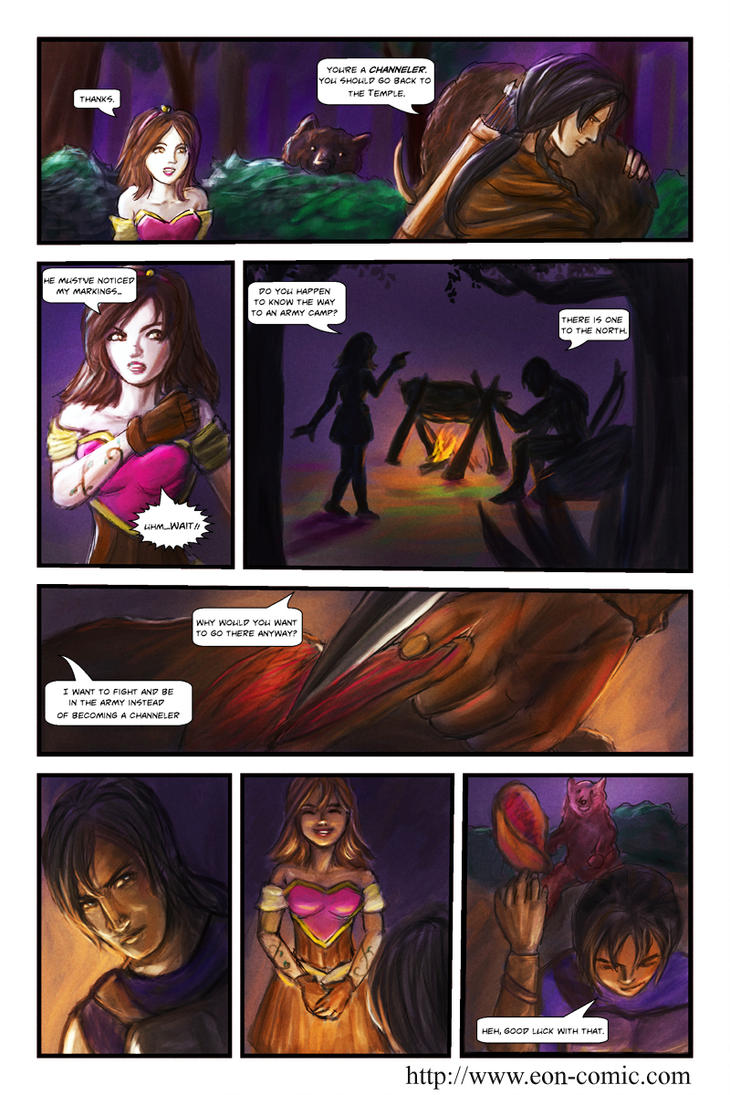I used to be one of those people who would complain that coloring my linework made my everything look like garbage and would ruin my compositions. Luckily, I had a few master colorists for mentors who clued me in that while you color, it’s important to keep in mind that the image and composition should still be distinct, lively, and readable when turned greyscale. This forces you to keep in mind not only hue, but tone and shade too while you’re finishing a work to ensure that you don’t turn everything into one colorful-but-monotone scramble. A lot of my work hinges specifically on spectacular coloring now and I think about that advice all the goddamn time.
Totally. Things like this are the final frontier when it comes to learning how to do comics properly. It's not the kind of thing you can pick up from just looking at comics, you've got to study the theory behind it. It's still all a bit mysterious to me, but I think I'm learning and improving bit by bit.
One of the advice I followed was when I submitted my first short story to a literary magazine that paid you $100 for each submission. The editor of the magazine sent me a personal email that said something along the lines of, "Your work was almost chosen for our magazine until we saw something even better. However, dont give up. Your work moved me and I just wanted to let you know that. However, here's some tips for you. Starting from right now, make yourself known to others. Create social media accounts and write more. Then come back to us when you're ready."
I ended up doing what they said. I wrote and practiced nonstop. Created stories and sometimes I gave up a few times of course but failure is apart of success.
Oh, this is something I reference a lot. It's crazy how even the most minuscule/mundane interactions can be the beginning of huge changes. Community is really awesome.
When I first started posting here, I expressed having a lot of trouble with digital inking. I'd had a tablet for years but every time I picked up the stylus, my work still felt awkward and clunky. @joannekwan made a suggestion that I finick with my tablet settings and afterwards, and it completely changed my approach. Feeling less cumbersome, I was able to experiment more with digital painting and many other tools in photoshop. I'm still learning but yo, that straightforward bit of advice opened up an enormous world for me! Very grateful to this day~
"You draw heads too big." Told bluntly to me by a friend in high school which I still think about to this day because I hadn't realized something so obvious and it just really helped me.
Also, the lyrics to this song (specifically the first part) helped me a lot, especially when I needed motivation and direction: https://www.animelyrics.com/anime/kaminomi/godonlyknows.htm1
Don't try to be perfect. You never will be.
Hitting deadlines is important. So don't add crazy details into your artwork that will slow you down so much that your whole project will fail because you can't get it done on time.
Be reliable and responsive (when working with others, publishers or freelancers you hire)
- Dont keep going back and try to fix the old panels, leave it be and try to do better next time, or else you will burn all of your life time into it without achieve anything.
I saw that somewhere on this forum when I was wandering around, looking for tips to start my comic, don't remember who wrote it tho, but thank you very much.
I make comics about my life and once I decided to draw a longer strip than usual. I was really proud of it but then I got a comment that said I should've cut it off halfway because the punchline had already been delivered and the rest was unnecessary. I was sad and stubborn for a bit but I couldn't deny that they were wrong, the strip was a lot better cut in half.
So now whenever I come up with an idea I think "Is all of this necessary? Is there anything that I can cut?" and I think it's helped the delivery of my content out a lot in a seemingly small way.
Yup. Here's the panel they were talking about. I've had to recreate the original because I overwrote it.
Here it is in black and white
If it weren't for the curve of the mountain I don't think you'd really know where to look.
Here is the adjusted version. All I did was add brighter yellows to the fire and smoke.
This probably isn't the greatest example but it's the one the crit pointed out, and it does make a difference in a small way.
Being told that the fan art I'd made was hurting the original creators do to it being inaccurate and that I shouldn't do it any more unless I was trying to be a dick to people.
That was quite a bitter pill to swallow and sending out all the apology to people I'd made stuff for over the years was kinda soul crushing. Still with out that I would have advice I would have kept on hurting people thinking I was doing something nice.
Write things over, and over, and over, try to visualize something before even starting. It's always ok to acknowledge that there will always be people better than you, no one can be the best, and that's perfectly ok, as long as you can find the beauty in your own artwork, then it doesn't matter.. The more you do something the better you'll get at it. Always remember that the masters have made more mistakes than anyone, but what makes them masters is how they overcome it and learn from it.
I fell into that waiting for everything to be perfect trap. I don't know if I regret it or not at this time but I did start my comic last 2011. I burned out and focused on just getting better with my artwork because I wasn't satisfied with the quality of my drawings.
Last night, I was working on my next page and all I could think about is that I will never finish this story because I have a lot of content to write and wondering if I wasted 6 years just improving. Personally, I wouldn't call it a waste but at this point, I shouldn't stop if I want to finish my comic - imperfections and all.
This is what my comic used to look like and its current version. I retained 4 of the 8 pages I did six years ago.
Other advice/lessons I took to heart over the years:
- Composition and values are very important (as @ScampiCub already mentioned). If you are already coloring , to check if you have correct values in Photoshop or similar tools. Put a black layer on top of everything and set it to color blend mode)
- Use references whenever possible
- Strive for improvement not perfection
Also this video is very helpful:
I remember two pieces of advice I have gotten that impacted me a lot.
The first was from my dad: "Write like everyone who reads this are stupid." Might sound pretty harsh, but for child-me that had poor sense of theory of mind (basically knowing that other people aren't mindreaders) it made me remember that people can't see what I think, so I had to me more clear in my storytelling.
"Write the story you want to read." I've seen this a number of times around the internet. I think I first heard about it from a Danish author I adore though.
"Never have two heads be the same size in on a page" This small advice has made my pages look a lot more dynamic and interesting. If I notice I have two heads the same size, I deliberately scale them op or down to avoid it.
"Done is better than perfect" I have a sticker om my laptop saying this.
And not so much an advice as a hack I found for my cintiq: Buy a small plastic ruler, that makes it so much easier making straight lines digitally. Because ofc a ruler helps on straight lines!

